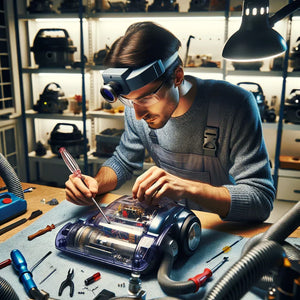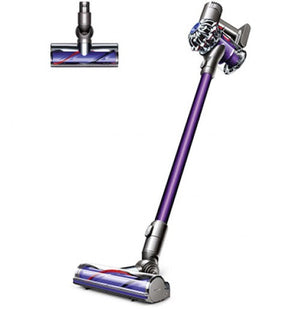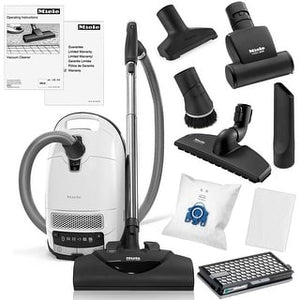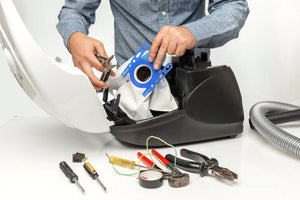5 Things To Consider Before Buying A Vacuum Cleaner

You need a good vacuum cleaner to keep your indoor environment clean and healthy. A poor vacuum cleaner, on the other hand, will give you a headache in more ways than one. When it's time to buy a vacuum, don't rush out and buy the most attractive model at your local big box store. Think of this purchase as an investment in your health and do your research well.
The beauty of vacuum shopping is that there's almost definitely a machine out there to fit your lifestyle. The problem with vacuum shopping is that there are tons of options and it can be difficult to zero in on that perfect model. Here are some tips to consider when going shopping for these dust removers.

- Shopping By Type
Start by determining the best vacuum for the type of cleaning you do. If you have wall-to-wall carpet, or just lots of rugs, uprights, especially with a bag, do best overall. But if you have lots of stairs—or hardwood, laminate, or tile floors—canisters can be easier to maneuver. Stick and hand-held vacuums are great for lighter tasks that need quick attention; a robotic device is an option for the set-it-and-go crowd. For those who do not require vacuums for their offices, they can opt for Industrial or commercial vacuum cleaners. They are heavy-duty machines, and are often meant for specific jobs like hazardous material cleanup, mold remediation, mercury cleanup, or museum artifact cleaning.
- What to Consider While Shopping
Choose from the range of upright, stick or canister vacuum. Upright vacuums are ideal for homes and offices that are mostly carpeted with some hard floor areas. Canister vacuums are easier to maneuver in tight spaces and carry up the stairs. Stick Vacuums are lightweight, easy to maneuver, and ideal for quick cleaning, these vacuums are great for spot cleaning as well. With the push of a button or the removal of attachments, some models transform into handheld vacuums that allow you to clean all those tight spots with better portability.
Keep a look out for these :
- Compare Features
- Noise Level
- Sales and Discounts

- Allergies and Pets
A HEPA filter is capable of collecting 99.97% of pollutants 0.3 microns. Vacuums for pets have a larger and an airtight design. Additionally, we recommend bagged vacuums for allergy-sufferers. Bags trap allergens better than the collection containers in bag less vacuum cleaners. If you have allergies or asthma, you definitely want a vacuum cleaner with the ability to remove allergens from the environment without simply stirring them up.
-
Add-On Attachments
Vacuum attachments make many jobs a breeze. Such as, the mini-blind attachment allows you to remove dust from hard-to-clean blinds, while a ceiling fan attachment makes reaching fan blades possible. Most vacuums come with basic tools that should suffice for most cleaning jobs: A narrow tool for crevices, a small upholstery brush, and a round brush for dusting. On canister vacuums, a powered intake cleans carpets more thoroughly than a simple suction intake. Edge cleaners are an optional tool and can pick up debris under the entire area of the cleaning head. That's useful when cleaning wall-to-wall carpeting; the vacuum cleans right up to where the carpet meets the wall.
- Bagged or Bag Less
Bag less vacuum cleaners save on the cost of purchasing bags but they also require more filters that need periodic cleaning or—for HEPA filters—replacing. The dust and mess of emptying their bins can be a concern if you have asthma or allergies. Bagless vacuums offer added convenience and you don't have to worry about replacing bags if you purchase one. On the other hand, bagged vacuums tend to keep even the tiniest particles in its bag, while emptying bagless bins can allow dust and allergens back into your space.
- Admin .







Comments 0